Vincent wanted nothing more than to make his father proud of him. But he regularly disappoints his father (a pastor). One could speak of a strained relationship between the two.
Theodorus van Gogh was born on February 8, 1822 in Benschop (municipality of Lopik, province of Utrecht), where his father's name was Vincent van Gogh (1789-1874). He was, among other things, pastor in the Great Church of Breda and secretary at the Society of Prosperity, which, among other things, acquired land and farms for the settlement of Protestant families in Catholic North Brabant. Theodorus (call sign "Dorus," nicknamed "the beautiful pastor") died on March 26, 1885 in Nuenen. The funeral takes place on March 30, Vincent's birthday. 'Pa' is buried in the old cemetery on the Tomakker in Nuenen.
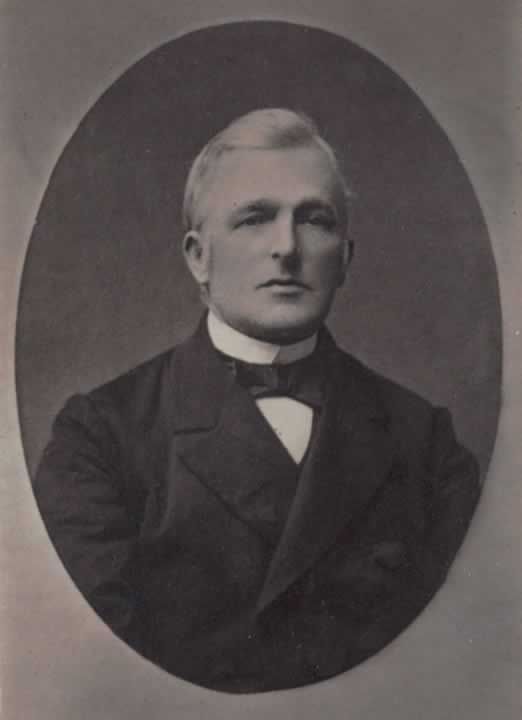
Theodorus spent his life as a pastor in several congregations in Brabant. On April 1, 1849, he is appointed pastor in Zundert. Two years later he marries Anna Cornelia Carbentus. Their children (Vincent, Anna, Theo, Lies, Wil and Cor) were all born in Zundert. After Zundert (a stay of 21 years) the family lives in Helvoirt, Etten and finally in Nuenen. Theodorus is physically not very strong (often has a cold) and, moreover, quickly worried when he sees the cohesion in his family being endangered. His worries mainly concern Vincent. His later fame he never knew. Nor did he ever suspect it.
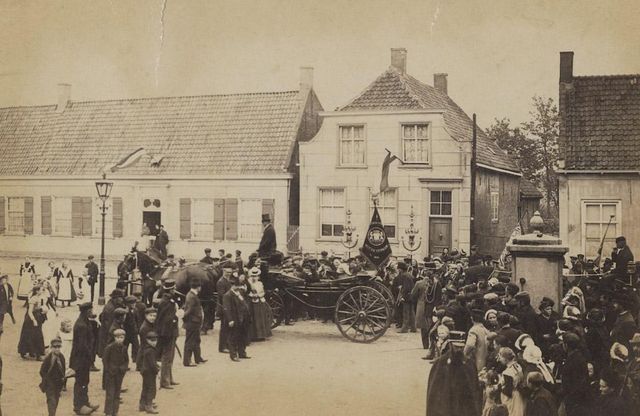
"Vincent to his brother Theo, July 1882 "
"Dad and Moe are not the people who understand me - neither in my faults nor from a better side - they cannot imagine themselves in me - with their reasoning leads to nothing but contention."
In the many letters Vincent writes to his brother Theo (Photo), Father Theodorus appears very often. He is a man of great stature. At first Vincent places him almost unreachably high on a pedestal. But the esteem later turns into bars deviating from his father's thinking and actions. Vincent has a special character, but his father is also not a man of the broad, relatable gesture. He sees danger everywhere, and in all areas of life he believes caution is required. The failures in Vincent's life often feel like personal failures to him as well. The relationship ends in mutual estrangement.
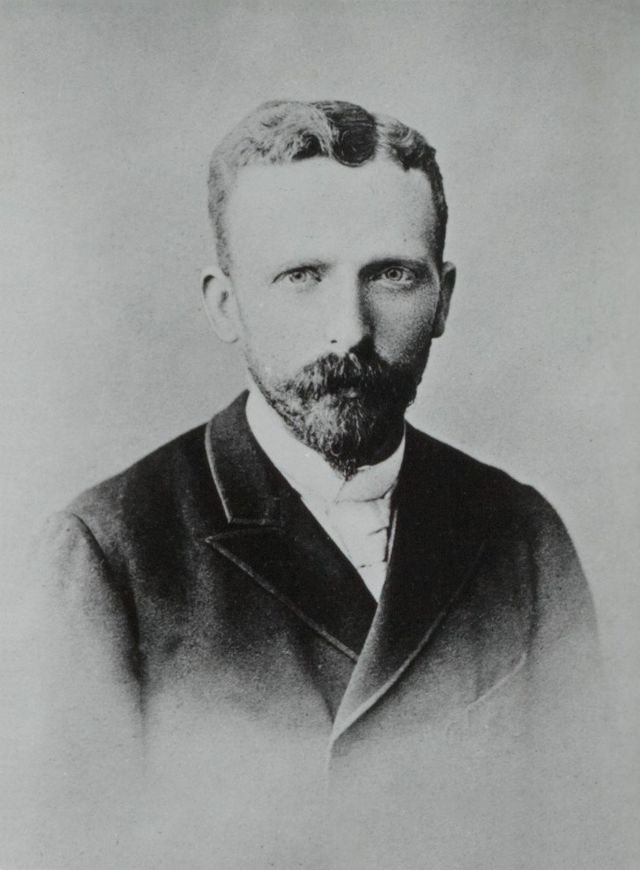
Vincent felt that his parents, his father in particular, did not understand him - a well-known phenomenon that is not time-bound. His modern ideas create conflicts with his father. The fact that he falls in love with his cousin Kee Vos-Stricker creates considerable tension in the family. Toward the end of 1881 that tension in Etten (now Etten-Leur) ran so high that Vincent was summoned to leave the parental home. In response, Vincent told his father that he wanted nothing more to do with his faith and he refused to go to church at Christmas. He angrily leaves for The Hague. Here he took a few weeks of painting lessons with the famous artist Anton Mauve (Photo).
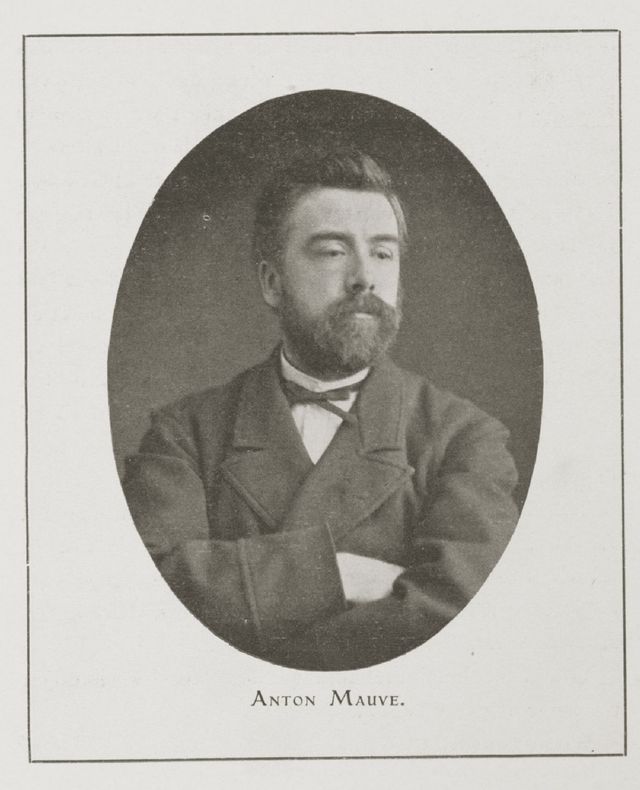
As strained as their relationship often is, Vincent is always welcome at home. At the holidays, especially Christmas, Vincent enjoys being with his family. Even when - in 1884 in Nuenen - "Moe" breaks her femur at the age of 64, Vincent does his part to take care of her. And that did not go unnoticed by Dad. It makes a certain rapprochement possible.
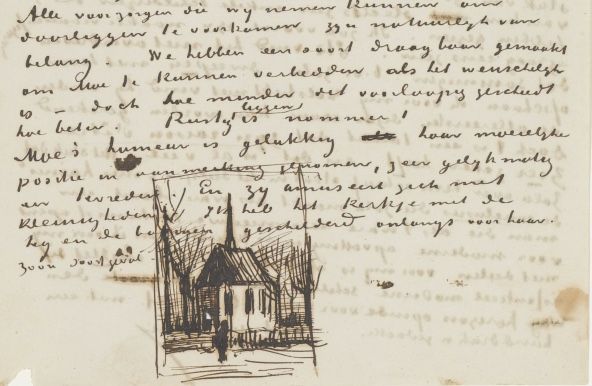
Go figure... Raising a difficult, headstrong, child like Vincent. A son who time after time seeks the limits of his well-meaning parents and crosses them with regularity. Almost at the end of his life, Vincent also realized that he had not been an easy son. Just before his death he writes to his mother about this below.
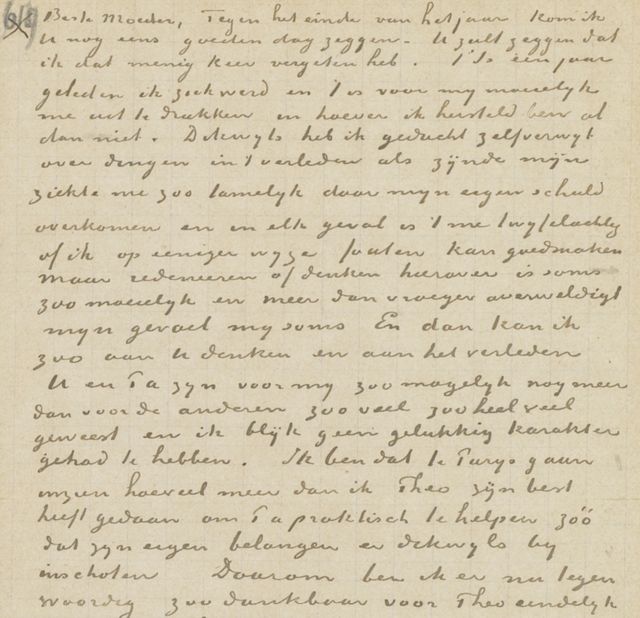
"December 23, 1889 "
"You and Dad have been so much, so very much, to me if possible even more than to the others, and I do not appear to have had a happy character. I came to see that in Paris."
Source: The family Van Gogh; a family history in letters. Nico van Wageningen.